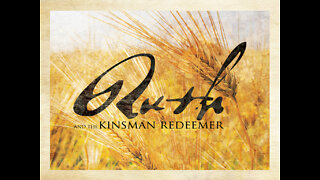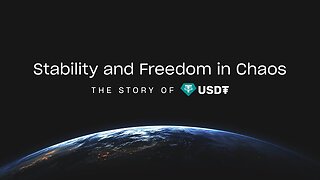Premium Only Content

Lesson 2: The Passover 041118
The Bible Show
Lesson 2: The Passover
Thursday, 04/11/2018
EvolutionPop.com
Recap Lesson 1: The Sabbath Day
Another reason people think the Sabbath day changed from the 7th day (Saturday) to the 1st day (Sunday) is due to teachings of the Catholic Church.
1.) Catholic Answers (www.catholic.com)
https://www.catholic.com/qa/did-the-early-church-move-the-sabbath-from-saturday-to-sunday
Did the early Church move the Sabbath from Saturday to Sunday?
Answer: Catholics worship on the Lord’s Day, the first day of the week (Sunday, the eighth day); the day when God said “Let there be light” (Gen. 1:3); the day when Christ rose from the dead; the day when the Holy Spirit came upon the Apostles (Day of Pentecost). The Catechism of the Catholic Church says: “The Church celebrates the day of Christ’s Resurrection on the ‘eighth day,’ Sunday, which is rightly called the Lord’s Day” (CCC 2191).
The early Church did not move the Sabbath from Saturday to Sunday. Instead “The Sabbath, which represented the completion of the first creation, has been replaced by Sunday, which recalls the new creation inaugurated by the Resurrection of Christ” (CCC 2190). Sunday is the day Catholics are bound to keep, not Saturday.
We see evidence of this in Scripture:
On the first day of the week when we gathered to break bread, Paul spoke to them because he was going to leave on the next day, and he kept on speaking until midnight (Acts 20:7).
On the first day of the week each of you should set aside and save whatever one can afford, so that collections will not be going on when I come (1 Cor. 16:2).
Let no one, then, pass judgment on you in matters of food and drink or with regard to a festival or new moon or Sabbath (Col. 2:16).
2.) Colossians 2: 1-17 (emphasis verses 6, 8, & 16).
Christ didn't rise on Sunday, but on Saturday the sabbath day.
3.) Matthew 28:1-7
4.) Mark 16:1-9
5.) Luke 24:1-9
6.) John 20:1-2
3 days and 3 nights
7.) Matthew 12:38-40
8.) Jonah 1:17
9.) Matthew 27:45-50 (Jesus died around the 9th hour - around 3pm). You can do an internet search for "9th hour" or "bible hours of the day" to find that the 9th hour is around 3pm.
Count backward from "Saturday at 3pm:
Saturday around 3pm = 1 day
Friday night = 1 night
Friday around 3pm = 2 days
Thursday night = 2 nights
Thursday around 3pm = 3 days
Wednesday night = 3 nights
10.) Daniel 9:25-27 (midst of the week)
Good Friday debunked
If Jesus died on Friday around 3pm, then he'd have to be in the grave:
Friday night = 1 night
Saturday day = 1 day
Saturday night = 2 nights
Sunday day = 2 days
Sunday night = 3 nights
Monday day = 3 days
11.) John 19:30-31 (high sabbath - 1st day of Unleavened Bread)
12.) Leviticus 23:5-7 (Passover, then feast of Unleavened Bread)
But he was already gone before Mary and the other disciples got there early Sunday morning.
Jesus our Passover
13.) 1 Corinthians 5:7-8
14.) Leviticus 23:1-8
15.) John 19:14-18
16.) Exodus 12:1-14
17.) Mark 14:12-15, 22-25
18.) 1 Corinthians 11:23-29 (can skip if no time)
Communion
19.) 1 Corinthians 10:15-17 (communion - Paul talking about sharing and being of 1 mind)
The Passover is not Easter
20.) Acts 12:1-5 (translation of Passover (Pascha))
21.) Ezekiel 8:14-15
22.) Early Christian Beliefs (www.EarlyChristianBeliefs.org)
https://earlychristianbeliefs.org/easter-resurrection-jesus-christ/
The Origin of Easter
Websters Dictionary
has this to say about Easter: Eastra or Eostre, Goddess of dawn, whose festival was celebrated at the spring equinox.
Unger’s Bible Dictionary
states this about Easter: The word Easter is of Saxon origin, Eastra (Eostre), the goddess of spring, in whose honor sacrifices were offered about Passover time each year. By the 8th century Anglo Saxons had adopted the name to designate the celebration of Christ’s resurrection.
The book Babylon Mystery Religion by Ralph Woodrow
says this about Easter: “It is well known that “Easter” is not a Christian expression – not in its original meaning. The word comes from the name of a pagan goddess – the goddess of the rising light of day and spring. “Easter” is but a more modern form of Eostre, Ostera, Astarte, or Ishtar, the latter, according to Hislop, being pronounced as we pronounce “Easter” today. The goddess of the spring, from whose name our word “Easter” comes, was associated with the sun rising in the east – even as the name “Easter” would seem to imply. Thus the dawn of the sun in the east, the name Easter, and the spring season are all connected.”
The Readers Digest book The Last Two Million Years
tells us this about Easter: “Often churches were sited where (pagan) temples stood before, and many heathen festivals were added to the Christian calendar. Easter, for instance, a time of sacrifice and rebirth in the Christian year, takes its name from the Norse goddess Eostre, in whose honor rites were held every spring. She in turn was simply a Northern version of the Phoenician earth-mother Astarte, goddess of fertility.”
Alexander Hislop in the book The Two Babylons states:
“What means the term Easter itself? It is not a Christian name. It bears its Chaldean origin on its very forehead. Easter is nothing but Astarte, one of the titles of Beltis, the queen of heaven. . .”
The Catholic Encyclopedia states:
“. . . Eostre, a Teutonic goddess of the rising light of day and spring. . . Eostre is the ancient European name for the same goddess worshiped by the Babylonians as Astarte, or Ishtar, the goddess of fertility, whose major celebration was in the spring of the year.”
Vines Complete Expository Dictionary of the Old and New Testament Words states:
“The term “Easter is not of Christian origin. It is another form of Astarte, one of the titles of the Chaldean goddess, the queen of the heavens. . . . the pagan festival of “Easter” was quite distinct and was introduced into the apostate Western religion, as part of the attempt to adapt pagan festivals to Christianity.”
From the above sources we see that Easter is the name of a pagan Babylonian (Chaldean) goddess; Astarte, Ishtar, Ashtoreth, or Beltis (the queen of the heavens). She later became known and worshiped in the northern hemisphere as the Teutonic goddess; Eostre, Eastra, or Easter (the goddess of the light of dawn or spring).
Believe it or not, Easter and its customs are mentioned in scripture.
The prophet Ezekiel depicts an Easter sunrise service and calls it an abomination.
Ezekiel 8:16-17 states: “Then he brought me into the inner court of the LORD’s house. And behold, at the entrance of the temple of the LORD, between the porch and the alter, were about twenty five men with their backs to the temple of the LORD and their faces toward the East; and they were prostrating themselves eastward toward the sun. 17 And He said to me. ‘Do you see this, son of man? Is it too light a thing for the house of Judah to commit the abominations which they have committed here, that they have filled the land with violence and provoked Me repeatedly? For behold, they are putting the twig to their nose.'” *
-
 1:35:32
1:35:32
Balmun's Channel
2 years agoFlight Lesson 3
10 -
 5:19
5:19
Bricklaying
2 years agobricklaying lesson
54 -
 1:11:12
1:11:12
Beachmamma
2 years agoRuth Precept Lesson 3
15 -
 10:50
10:50
Learning to Read and Write with Imelda
2 years agoLesson 8
14 -
 LIVE
LIVE
Rising Rhino
5 hours ago $0.80 earnedWashington Commanders Vs Philadelphia Eagles: NFL NFC Championship LIVE Watch Party
1,040 watching -
 18:53
18:53
DeVory Darkins
1 day ago $4.25 earnedTrump JUST ENDED Mayor Karen Bass During HEATED Meeting
8.41K55 -
 21:06
21:06
Russell Brand
4 hours agoIT'S COMING
39.3K225 -
 21:26
21:26
Stephen Gardner
23 hours ago🔥What JUST leaked out of Congress must be STOPPED NOW!
71.9K163 -
 53:25
53:25
tether
11 days agoStability and Freedom in Chaos: The Story of Tether USD₮ | Tether Documentary (USDT)
100K5 -
 56:44
56:44
VSiNLive
2 days agoFollow the Money with Mitch Moss & Pauly Howard | Hour 1
46.8K2